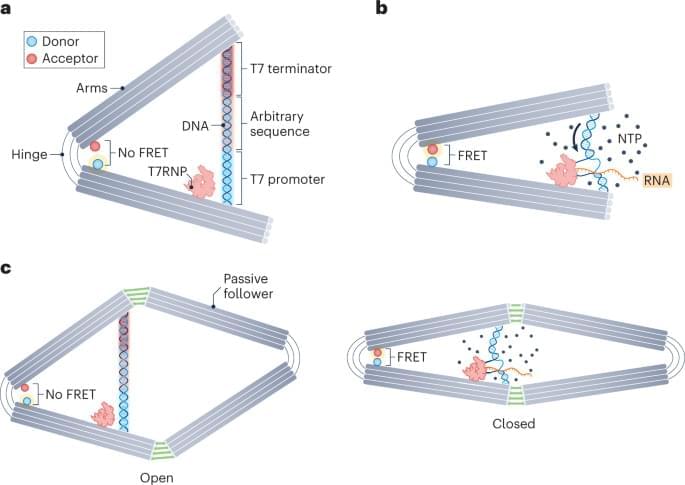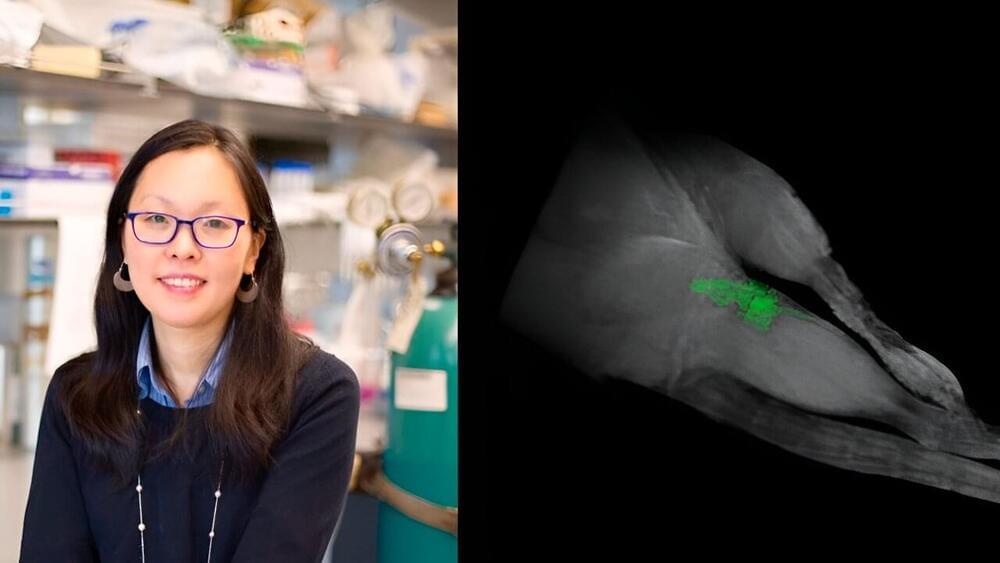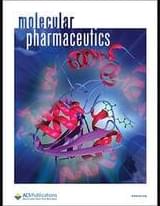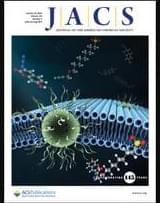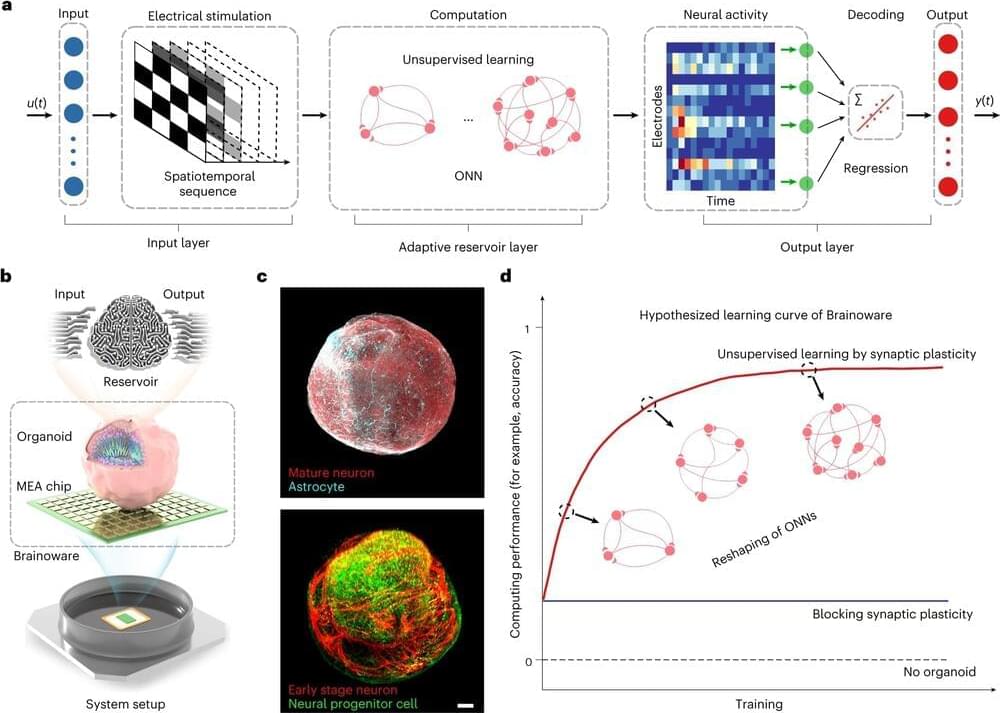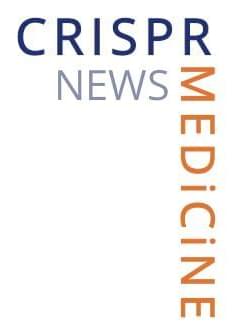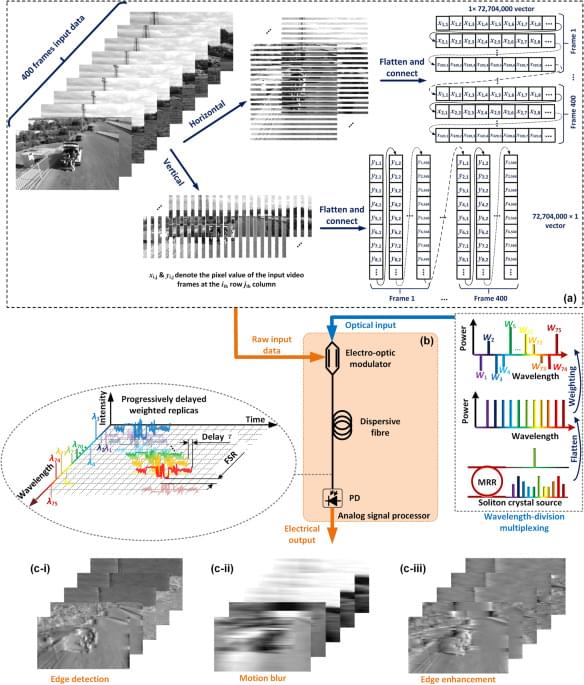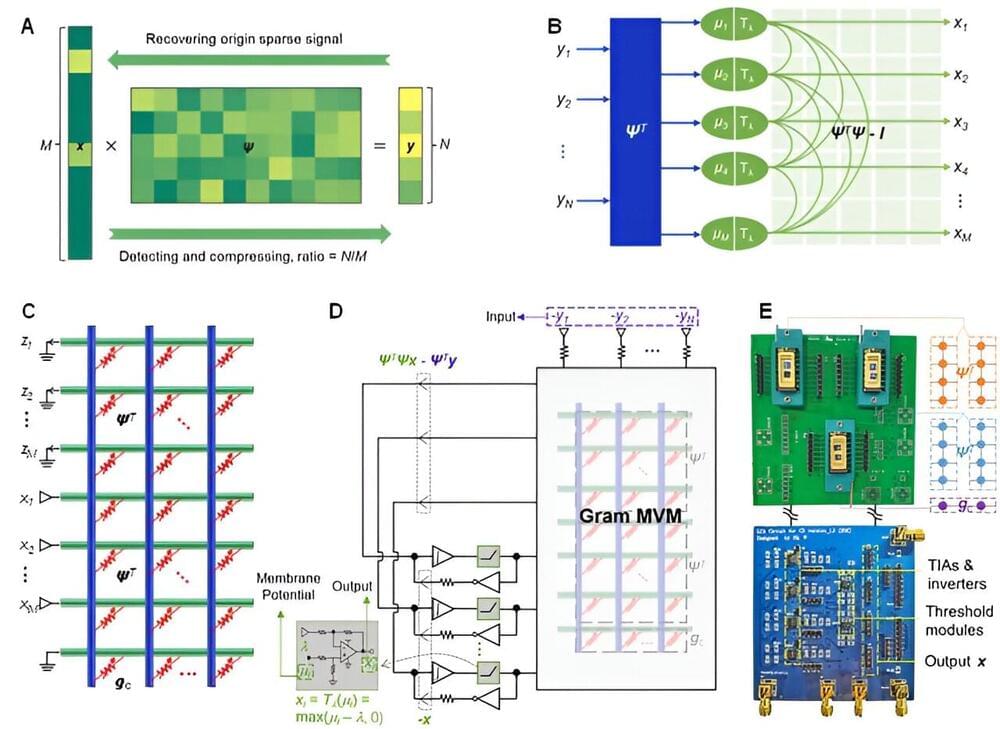A research team led by Prof. Sun Zhong at Peking University has reported an analog hardware solution for real-time compressed sensing recovery. It has been published as an article titled, “In-memory analog solution of compressed sensing recovery in one step” in Science Advances.
In this work, a design based on a resistive memory (also known as memristor) array for performing instantaneous matrix-matrix-vector multiplication (MMVM) is introduced. Based on this module, an analog matrix computing circuit that solves compressed sensing (CS) recovery in one step (within a few microseconds) is disclosed.
CS has been the cornerstone of modern signal and image processing, across many important fields such as medical imaging, wireless communications, object tracking, and single-pixel cameras. In CS, sparse signals can be highly undersampled in the front-end sensor, which breaks through the Nyquist rate and thus significantly improving sampling efficiency.
